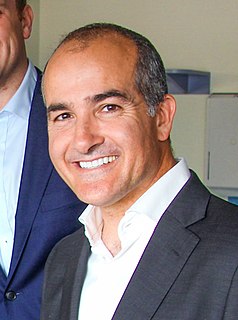A Quote by Peter Drucker
Change is the norm; unless an organization sees that its task is to lead change, that organization will not survive.
Related Quotes
Talking about improving the culture, I prefer to say "develop" or "evolve" rather than "change". If I walk into a room and say: "we are here to change the organization," it sends shock waves through the group. If I say: "your success to date has come from who you are, to be successful in the future, we need to get to X, let's talk about how we evolve the organization to that point," that is a very different statement. Successful organizational "change" must come from the people. So, recruit them with common purpose, recognize that it will take time, and plow forward.
The first step in community organization is community disorganization. The disruption of the present organization is the first step toward community organization. Present arrangements must be disorganized if they are to be displace by new patterns.... All change means disorganization of the old and organization of the new.
In any bureaucratic organization there will be two kinds of people: those who work to further the actual goals of the organization, and those who work for the organization itself. Examples in education would be teachers who work and sacrifice to teach children, vs. union representative who work to protect any teacher including the most incompetent. The Iron Law states that in all cases, the second type of person will always gain control of the organization, and will always write the rules under which the organization functions.
You must develop a sense of what you can contribute that goes beyond 1 company or organization. A career path today will likely involve moving from organization to organization, creating a picture of rising circles, rather than a vertical ladder. In fact, a vertical rise within one organization will very likely move you away from your strongest areas of competence.
It's important in any organization that if visions have any reality at all, it's because the organization believes that the vision is right and that they share in it. Otherwise, it becomes the good idea of one person, and that even more importantly contributes to the sense that it will not survive the departure of that individual.
One of the difficulties in bringing about change in an organization is that you must do so through the persons who have been most successful in that organization, no matter how faulty the system or the organization is. To such persons, you see, it is the best of all possible organizations, because look who was selected by it ad look who succeeded most in it. Yet, these are the very people through whom we must bring about improvements.



































